 As the wonderful comedienne, Joan Rivers, would ask, "Can we talk?" Comments. We love a comment. At the bottom of every a piece, there is, in extremely tiny, blue letters, so fine it can hardly be seen, the word Comment. Click and join the conversation. You remain anonymous, with only your first name. Some people even choose a new name- e.g Barbecue Bill, Pino, Lusty, Baker. Your email remains hidden. Many comments come by email rather than through the blog. Why not "blog it" and share with others? Expand the conversation. Send me a friend's email and I'll add it to the list. My last two topics were farmed salmon and dishwashers (dumpers or rinsers.) It was interesting to see many more comments coming through (on the blog, Facebook or to my email) about dishwashers than farmed salmon. What does that tell us about ourselves / our pre-occupations? I sensed a touch of reluctance (or sadness) in giving up salmon. It's so, so convenient and it's always there (sometimes wild fish just aren't biting). There were lots of hopeful suggestions about the possibility of better New Zealand salmon. We'll continue to check it out. All in all, a matter of yes, but... Join the conversatation👇🏾
5 Comments
Above: A dish's progress around the kitchen
The potatoes were sliced, seasoned, garlic, and cream added, arranged in a dish, then oven -180˚C for 45 minutes. Taken bubbling to the table, we shared it. The dish was left dirty on the table overnight. (I told you I was a slattern.) I rose at 7.00 a.m., fed the cats, gave a half-hearted scrape around the gratin dish with a spatula and loaded it into the dishwasher along with other dinner paraphernalia. At the end of the cycle, it was returned, along with the rest, perfectly clean (and sanitised at 60˚C) to the cupboard. (There was no avocado or peanut butter to deal with. I believe they are stubborn.) It's a first world problem and note that pre-rinsers mightily out-numbered dumpers, despite all the literature being against rinsing. Interesting points... Anti-rinse: An intelligent, committed, busy friend described herself as the sort of tragic nerd who reads the instructions when she gets a new appliance. (So novel!) If Ms Asko or Mr Bosch tell her not to rinse, that's good enough. Hedging his bets: Alistair McAllister wrote that his dishwasher is 74 years old but at least it keeps his hands clean. Pro-rinsers: Most suggested they didn't like the idea of all that jucky matter sitting in the pipes. (Jucky, grubby and mucky were very much at the forefront of the discussion.) The plumbing of a dishwasher is like the plumbing of the bathroom / lavatory. Water flushes it all away. (Modern plumbing is my pick as the greatest boon to modern civilisation, way beyond electricity or the Magimix.) May I assume then, that most bathrooms / lavatories are reserved for applying cosmetics and storing fluffy white towels and that serious ablutions are conducted on the back lawn? Next, I'm looking into "Wellness". Join the conversation 👇🏾 Salmon, unceremoniously plonked and piled in the supermarket chill display. It's cheap, it's abundant, it's portioned, it's colourful, it's easy, it's available. But according to Tasmanian author and Booker Prize winner, Richard Flanagan, it's toxic. Salmon was once a special-occasion food, wild caught and seasonal. Before salmon farming began (Norway c. 1975) smoked wild salmon served in hotels and restaurants was handled like gold. The salmon was weighed, the weight recorded in a book. The required slices were removed and plated, possibly draped across some Iceberg lettuce with a twisted slice of lemon and an onion ring. The salmon was then re-weighed and the weight recorded. It was precious. Handled with awe and respect, staff in "cold larder" would never dare to sneak a snack. Years later, I might be making up sandwiches for my nieces, their primary school packed lunches, with left-overs (farmed salmon) from a catering job "Oh Cathy, not smoked salmon again!," they whinged. Like chicken, salmon has become an industrialised product, the process touted as feeding a hungry world, affordable and easy to prepare. In reality, the cost could be just too great. 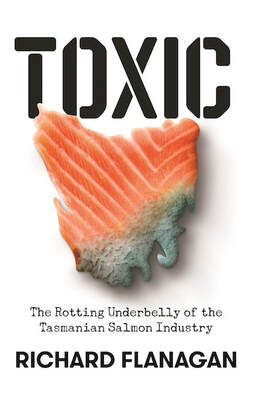 So what has brought on this soul searching? Our Gastronomy Book Club is going well. We meet monthly and the glass of wine and a few cashews has grown to mini banquets. We're helpless to resist. Our readings have ranged from romantic, foodie memoirs where tables groan with platters, platters brim with abundance and food bursts with flavour to hard hitting, thought provoking, often angry diatribes. This month we're reading the newly released Toxic and seeing the underbelly of the salmon farming industry. Flanagan calls farmed salmon "a highly artificial, chromosomally manipulated, dyed, fatty protein with decreasing omega-3 levels". He challenges the image promoted by the industry of idyllic pristine Tasmanian waters producing a clean, green, and healthy product.
Left: CM's Coulibiac, painstakingly done with the herbed pancake enclosing the fish. (19thC Limoges) Right: My Coulibiac, a bit of a quickie but delicious, nonetheless. (1930s Royal Copenhagen) Finding sources of wild-caught Alaskan, Canadian or Scottish salmon seems extreme. So are we going to find alternates? I'll miss a sliver of smoked salmon on a crouton with sour cream and capers, and some salmon roe topping a runny omelette or a steamed Japanese savoury custard. I love the Lebanese tahini, yoghurt, walnut, red onion sauce on a whole fillet of salmon but most of all, will I find an alternative for the Coulibiac - a classic French dish copied from the Russian Kulibiaka, (when the two countries adored each other)? Is the book a wake-up call, exposing an environmental disaster, a suspect food product, corporate corruption and a failure of governance or is it leftie, subversive rubbish, from old green hippies protecting their holiday shacks? Or will we simply say ""Yes but... it's so convenient."
In my restaurant days, we ate many left-overs. Today, I couldn't face another spoon of Marquise au Chocolat but I never tired of salmon. But, I won't be eating it again. I'd rather eat the peanuts from a bar room floor. Join the conversation. Add a comment below👇🏾 Plates ready for friends coming to dinner - but are they really clean? I'm a slut. It's official; a slut*, a slattern, a slammerkin. That's quite a relief because, in the past, I've felt criticised for being too particular, rather obsessive, but in fact, I'm a slattern. (Or perhaps, I'm one of the very few people who lucked upon a super, superior dish-washing machine.) It seems from the week-long survey on rinsers or dumpers, that rinsers far outweigh dumpers by about 12 to 1. Some of the dumpers were even careful with a quick wipe-over if the plates had held some virulent berry juice, for example. It seems some of the results were skewed because a lot of the readers were empty- nesters and didn't need to dish-wash every night. Many others were callow sophisticates who ate out at least three times a week. Nonetheless, I’m a slut – We sleep with the cats. (If we had a dog and a gorilla, we’d sleep with them too.) Sanctioned by our vet, the glass next to my bed at night I share with Jicky (one of the Orientals). But worst of all, I don't pre-rinse, ever. Yes, I'm a slammerkin, I don't rinse - even though I iron tea-towels, colour coördinate my bath towels and Marie-Kondo my drawers. Feeling oppressed, paranoid and losing my self-confidence, I spent a wonderful hour on the phone with my new best friend, Audrey from Bosch Australia. Once she'd got the cut of my jib, she dropped her guard and sniggered "It's a dishwashing machine, for heaven's sake. It washes dishes!" In short, I learnt a thing or two.
* Slut - "Kitchen maid or drudge", used into the 18th century. (Hard knots of dough found in bread were referred to as "slut's pennies"). Samuel Pepys (diary entry, February 1664) describes his servant girl as "an admirable slut" who "pleases us mightily, doing more service than both the others and deserves wages better". Later it came to mean a dirty, untidy, or slovenly woman. (Today's meaning is something else, again.) What goes in. What stays out.
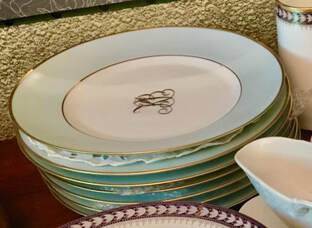 For example, this set of twelves large, beautiful, duck-egg blue Bing & Grondahl plates, c.1970 - $10, the lot! I am driven by aesthetics and believe in and admire effort. But not only do I grow weary, I realise that (unlike CM's) my stuff is not museum quality and no-one wants it. And in the end, the people around the table are more important than a plate. So, dear reader, I will share my shame. These days I put everything (nearly) through the dishwasher, with certain precautions. The heat will not hurt the plates. (Porcelain is fired at 1,400˚C.) I use a liquid dishwashing detergent which is less abrasive than even the new sachets and I carefully measure out one teaspoon, literally one teaspoon only of it and the machine does the rest. The heat, swishing action and minimal detergent even cleans off smeared Tripple Cream Brillat-Savarin cheese. Old or special glasses I do by hand and allow them to dry on a sponge mat designed for the purpose or a folded bath towel. Handling my toys gives me great pleasure but life must go on. Comment? 👇🏾 Could this change the rinsing habit? Could this soothe the tension between the rinsers and the dunkers? Europeans (Latins) eat differently. Anglo-Saxons are taught to leave something on the plate for Mr Manners. I was taught that taking a small portion meant that we could willingly accept a second helping and thus compliment the cook. A clean plate showed you had enjoyed it. At home it was expected that your plate would be wiped clean with a piece of bread. If you were "posh", you might put the bread on the end of your fork. (Not done in formal situations of course.) In French, it's "saucer l'assiette". In Italian you use your "scarpetta", a piece of bread, (a little shoe) to clean up that last bit of sauce. Even more fun, in Gascony (S.W. France) they "chabrot", a peasant tradition that is now followed only in historic or traditional celebration. Suggested not to be done on a first date or with your Aussie in-laws. When having soup or a brothy casserole or stew, leave a little at the bottom of your plate. Pour in some red wine. Swirl the wine around to gather together all the juices and then drink, from the bowl, of course. Plate rinsed!
See an elegant demonstration... https://www.youtube.com/watch?v=iDL_H2YCynw COMMENT 👇🏾 Not one of the more attractive images on this blog. Left: the plates after a meal of braised rabbit in red wine with green olives & grilled polenta. Right: the next day, clean and ready to be put away. BUT - these are old plates with a gold rim. (Next piece for special instructions.) At an early age, (I was nine) I knew I wanted a dishwasher; wanted it more than any other appliance. This was not because I was care-worn or watched my mother wear herself out. We had a happy household of shared chores. My father didn't "help", he "did". Washing up was a jolly four-person affair. (We didn't have a television until I was twenty.) What turned me was seeing the machine, arrogantly sitting in the shop-front of the department store, dealing with a load of dishes and into which had been placed a fully-iced, three-tier chocolate cake. Great gimmick, great selling point. Are you a rinser or a scaper? Do you thoroughly rinse your dishes before loading them or do you bung dirty dishes straight into the racks? This is a conundrum that can divide families, tear apart friendships and take asunder a civil society. Basically, it seems that you should stop pre-rinsing - particularly if you want your machine to do a good job, but mainly because it's a terrible waste of water (which I'm sure you care about). A certain detergent company currently uses the massive waste of pre-rinsing as it's main selling point, playing on our guilt for their own ends certainly, but it does, nonetheless make sense. Scrape, don’t rinse. "There's absolutely no need to pre-rinse," says Ashley Iredale, a whitegoods expert at consumer advocacy group CHOICE, and an adamant anti-rinser. "All you need to do is scrape off solid food. The dishwasher will clean off the rest. If you pre-rinse your dishes, you may actually fool your dishwasher into thinking you only need the lightest of washes," Mr Iredale explains. Modern dishwashers have an "intelligence“ that measures the soil level and adjusts the cycle based on that, (which explains why my machine does either a 29 or a 33 minutes shift). “Modern detergents clean by clinging to leftover food," says a Mr Tarrant, category director for Bosch dishwashers (2020). Nothing to grab? No left-over cling, no clean. Germs? The high temperatures of the dishwasher ensures the load is hygienically clean; better than a rinse of luke-warm water from the tap. 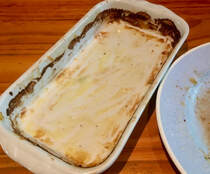 Left: Nasty - this gratin dish (baked-on crusty cheese & breadcrumbs) was soaked overnight. Loaded next day, it came out clean. Can't ask better than that. Do's and Don'ts... Some food sticks if it gets an extra “cooking” from the heat of the water e.g. egg and floury things like pasta and porridge. Give it special scrape. Never put in wooden items like stirring spoons or chopping boards. Old glassware can be damaged. (More later.) Clean out the strainer/filter, often, PLEASE! We tried the fast cycle (29-33 mins) and found it perfect, even for saucepans. Have you tried yours? Worried about leaving dirty dishes overnight? Worried about smells? Use the machine's pre-rinse cycle. You'll still be saving water.
For a special treat, cut a lemon in half, skewer it to one of the racks and press the button. Small household? Small load and you don't want to leave it for a day to add more? Run a machine rinse cycle or just for the hell of it, the full cycle. I've started living dangerously and running a half-load. This is still not using the amount of water of a hand pre-rinse. Let's save water. "Dishwashers are far more water and energy efficient than washing by hand," according to Tarrant (Bosch). Even a quick rinse before loading involves using a whole lot of extra, unnecessary water - 30-40 litres, (compared to 6-10 litres for a complete wash in the machine). A "thorough" wash by hand in the sink (rinsing, washing then final rinse) uses even more, 80% more water than the washing machine. If using the machine, why add to the water consumption by pre-rinsing? You care about garbage recycling, you divide out your glass from your paper from your plastic. You have a compost heap. You don't buy fruit in plastic packaging. You take your own shopping bags to the supermarket. You've cut down/cut out eating meat. You've given up farmed salmon. You recycle elastic bands and wrapping paper. So... Why pre-rinse? Life too easy? Not enough to do? Worried about germs? Not enough dishes to make up a full load? Old habits die hard? Worried your mum wouldn't like it? Cook a meal, enjoy it with friends. Let your machine do the nasty work of washing up. (One of many, many related articles - Ditch the Rinse.) Share your bad habits. Comment below. 👇🏾 Looking into the question of pre-rinsing or not rinsing for the dish-washer (next post) I realise how much we dislike change. We want something different, as long as it reminds us of what we know. Handy Hints are now called hacks, I believe. Larry David, co-writer of the sit-com Seinfeld, gave me (not personally) two of the best life hacks ever, which I have used regularly to my advantage ever since.
Yes, I aim to disturb, to question. But a suggestion comes from a simple observation. It is not a rule, not an edict, not an injunction nor an ultimatum. I've suggested for example, a different way to arrange cheese on a plate (11th Jan, 2018). A friend commented archly that a famous chef on TV (Celebrity Chef, Master Chef, Chef Extraordinaire, TV chef, not sure which) had not done this. (Perhaps I could advise him; he might like my idea.) But it's not a rule. Carry on serving your cheese on hefty 15 kilo planks of Huon Pine, if you wish. So before I set off to delve into the murky world of unwashed dishes, I'll leave you with the simplest and possibly the best cooking tip I've ever received. The major-domo at Orlando Winery's city headquarters (now a row of high-rise appartments) was ultra conservative, a committed believer in the crisp white shirt, polished hair, and the dignity of service. He was a master of the malapropisms. (He was "rape-able" when asked to change a table setting. Small wineries were "petique".) But I think warmly of Maurie whenever I cook green beans. Have the water at a rolling boil. Add half a teaspoon of salt, half a teaspoon of olive oil, throw in the beans for six minutes. Drain and serve.
The oil is the miracle. It leaves a glossy film on the beans - beautiful. (Let me know.) Share some simple tips. (Comments 👇🏾 in blue below.) 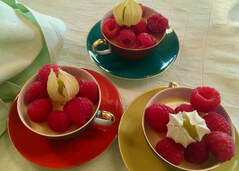 Lemon Posset with fresh raspberries and one (only one) home-grown Cape Gooseberry (Physalis), served in minute, harlequin-coloured demi-tasse coffee cups (c. 1958 Arzberg), the tablecloth a delicious pale green - my mother's (pre WWII - French). A tiny, sweet finish for when you've really had enough. (Lemon Posset - an old-fashioned "pudding" of cream, sweetened and "set" with fresh lemon juice. THE TABLE HAS BEEN EMPTY
The first dinner after "lockdown" was at this very sparse table, with a favourite cousin; three of us still social distancing at a table opened up for eight. Fortunately, all three of us are quite vocal. We're beginning to see normal again in Australia (at least), while aware that stillness and solitude continue for friends and relatives in America, France, Britain and Denmark. I've taken up the keyboard again, at last. For many months, as well as suffering from a general numbness, it seemed irrelevant to talk about, even with a wry smile, the placing of cheese on a plate, getting children to eat their greens and holding their cutlery "correctly" , the trials of feeding the sour dough starter. But I continue to obsess, to cringe, to observe and to be moved. I'll be working on...
During"lockdown", we've followed the trends - tidying, preserving, bread... Left: a superb sour dough loaf made by a friend who has seriously taken it to heart. His results are perfection. What a crackle to that crust! He wants me to adopt a "starter". Not sure if this means I'll have to set the alarm to get up at four hourly intervals to feed it. Cats are bad enough. Left: Cutting Roger Haden's bread with the old Danish bread cutter.  Left: Dealing with an overwhelming daily avalanche of guavas - guava jelly. Right: Painstaking work for pomegranate syrup, made by friends Pauline & Jen. Could only happen in "lockdown". What bliss. Basically I've been fine; in fact I've loved the calm. I've handled with poise the on-line and newspaper overload of recipes, overload of books to read, films to watch, nostalgia, "confected outrage" and attempts to make me feel I'm not as scared, worried or depressed as I should be. I'm fine - but after nine weeks, there was an underlying restlessness. Perhaps it's little wonder that I was in the right haywire-frame of mind to be tempted by a totally whacky recipe I found during my constant reading and "research" . Consider Flygande Jakob (or Flying Jacob, in English), a warming Swedish casserole of chicken, cream and banana. When you consider Sweden, what comes to mind? Clean, natural landscapes, glaciers, sensible cars, equality, democracy, happiness, the wholesome voices of ABBA, sleek, modern furniture, a sensible royal family, Ikea, - and an unconventional approach to social distancing. With my inner-Scandi ruffled, I needed to verify the claim that the dish actually existed. I consulted The Nordic Cook Book, a massive, meticulously researched work by Magnus Nilsson, a long-haired young Viking*. And there it was. "Few dishes are as emblemetic and unique to the contemporary food culture of Sweden than this." In 1976, pilot Ove Jacobsen, arrived home and remembered he was due at a "pot-luck" dinner. He threw together what he had on hand. It was a huge success and the recipe was printed in the Swedish magazine, All om Mat (All about Food). The meat of a roast chicken was pulled apart and seasoned with commercial Italian dressing. Bananas were sliced and arranged, cream whipped and enhanced by a generous slurp of Heinz tomato and chilli ketchup. Once baked the casserole was topped with crisp bacon pieces and roasted peanuts. The rest as they say, is history. Reader, I made it. Surprisingly, it was delicious and perfect for that stormy evening - very **"hygge". Furthermore, we decided to serve it to the first friends invited when "lockdown" eased. I went to our butcher. It's a real butcher shop, no white polystyrene trays, two enthusiastic young guys who will cut to order and even get you stuff, like brains and sweetbreads. I could even call it a "boutique" butcher's shop. We like a chat. I explained I was trying out an unusual dish, chicken with banana. Danny looked grim. "Not that Jacob thing?" I was horrified. "How on earth do you know about Flying Jacob?" Had I been pipped at the post by Vogue Living or by Gourmet? I thought I was to be the one to introduce this wonderful curiosity to Australian foodie taste-buds. "Geez - about twelve years ago I met this girl in Cooper Pedy whose parents were Swedish. It was bloody awful." Reader, he married her. I told him he should allow her to make it again, perhaps using my "elevated" recipe below. (I have exchanged peanuts for almonds, for example, and if not using bacon, try crispy shallots.) Incidentally, my friends loved it.
I must warn that it defies a wine match. Flying Jacob (or Flygande Jakob, pronounced Flew-gan-der Yacob) For 4, (perhaps with rice, green beens or salad) 480 gm chicken thigh fillet 1 tbsp chopped herbs (oregano, parsley, thyme) 2 spring onions, finely chopped, white part and half of the green 2 bananas, "ready to eat" ripeness 300ml cream 100ml tomato passata or 60 ml concentrated tomato purée 1/4 tsp dry chilli flakes (to taste) or 1 tsp smoked paprika 150 gm bacon 1/2 cup flaked almonds Seasoning to taste.
If you don't wish to eat meat, this also works well with a mix of root vegetables cut into chunks and pre-roasted (carrots, turnips, sweet potato, beetroot) in place of the chicken. (Allow 150gm all up per person.) Top with crisp, cooked shallots & almonds. I haven't tried with fish. Let me know. Snapper could be good (it needs big flakes) but salmon might be too rich. STOP PRESS - I have just been reminded of Whiting Caprice, (crumbed whiting with banana, circa 1965). It was served to President Lyndon Baines Johnson at an official dinner in Canberra in October 1966. Fillet of Whiting Caprice with tartare sauce White Burgundy - Lindeman's Private Bin 77 *Magnus Nilsson is no slouch. His restaurant Fäviken had two Michelin stars and was listed at 67 in the Pellegrini 100 world's best restaurants. Closed in 2017 after 12 years, it was open 30 weeks a year, seated 24, and was situated in the deep interior of Sweden. (Lots of foraging!) **Hygge-(Hoo-ger) - a Swedish concept of comfort, cosiness and candles in winter. Let me know your feelings/experiences with Flying Jacob. Love a comment - (see below) - minuscule blue "comment" below. 👇🏾 |
Categories
All
|
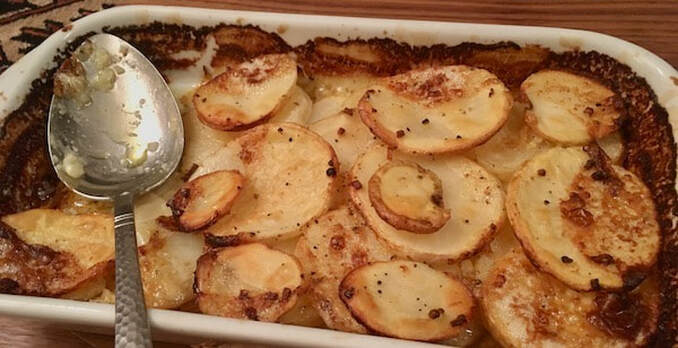
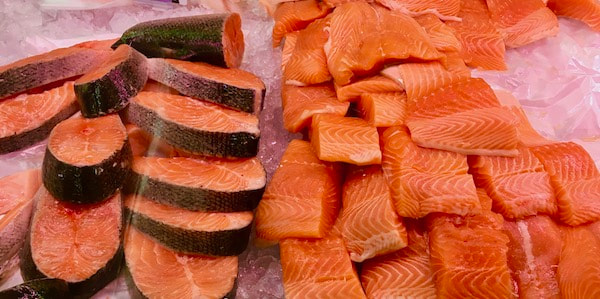
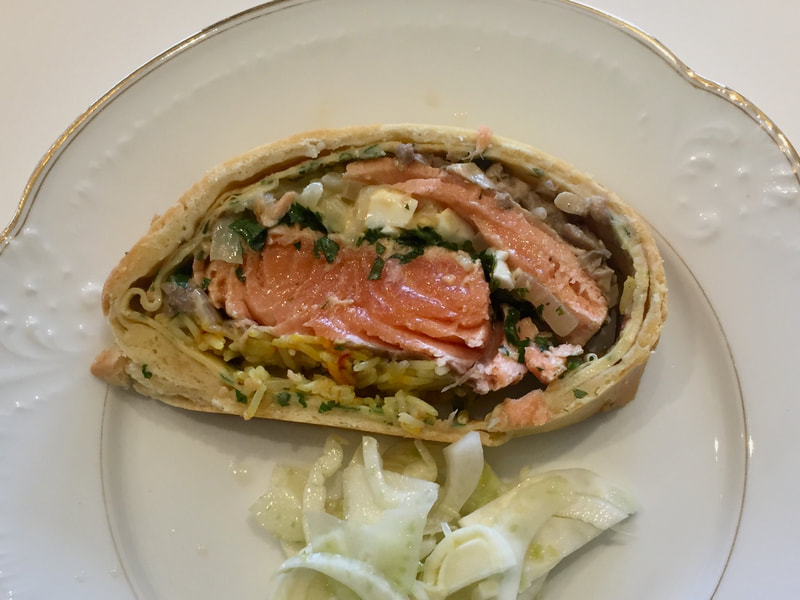
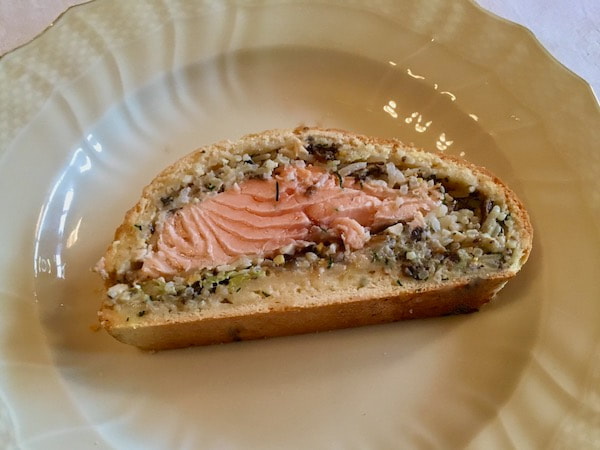
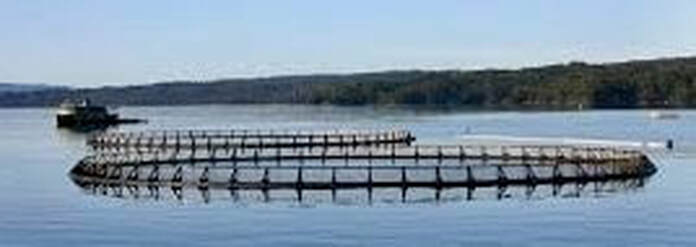
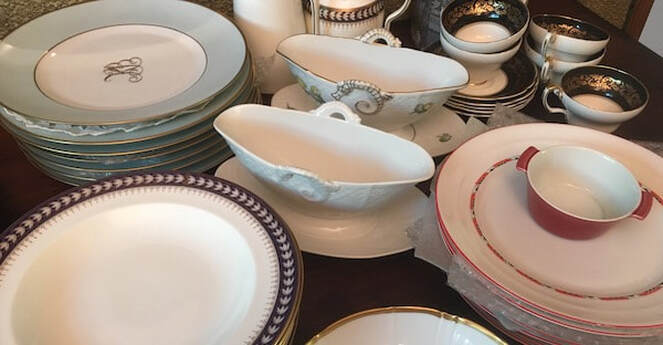
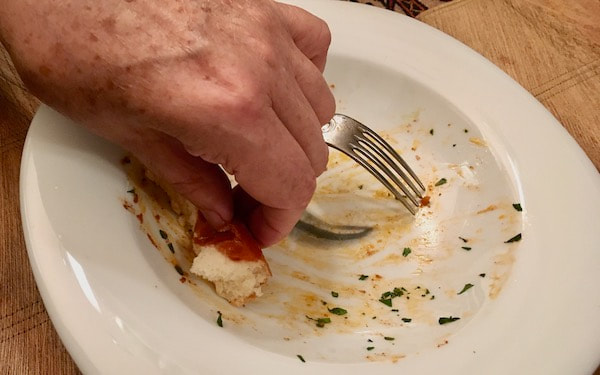
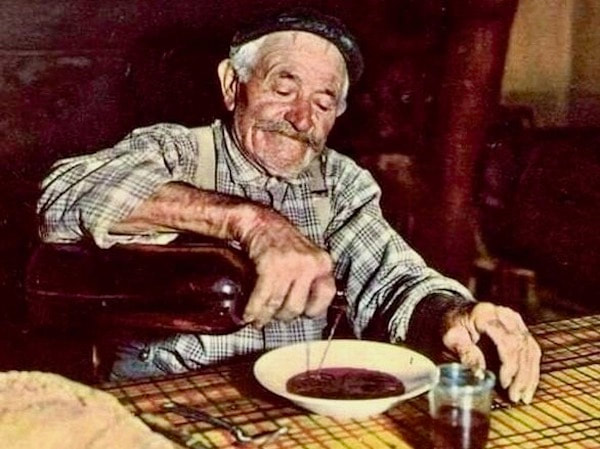
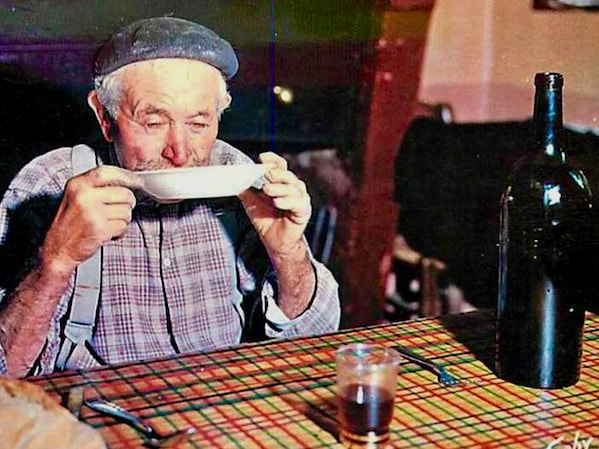
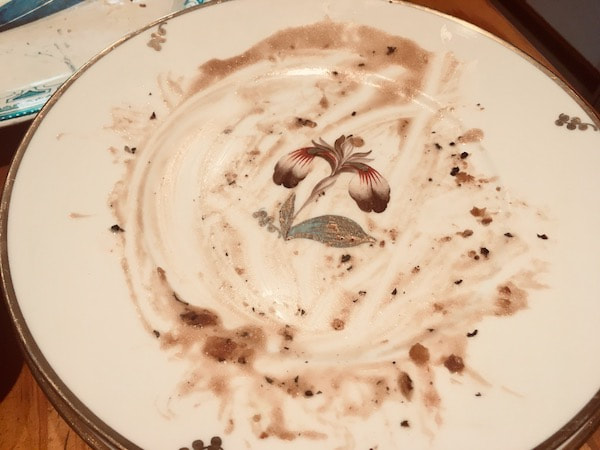
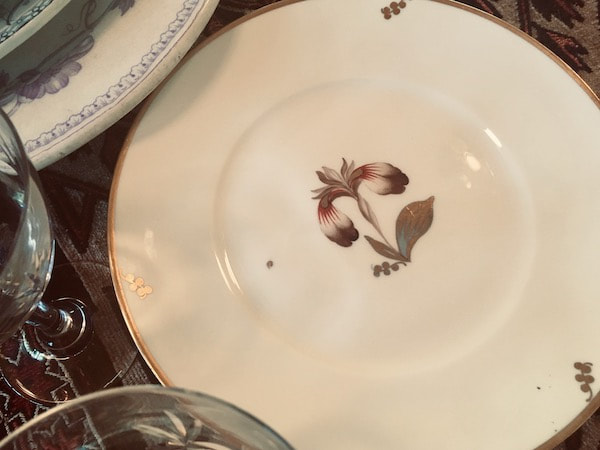
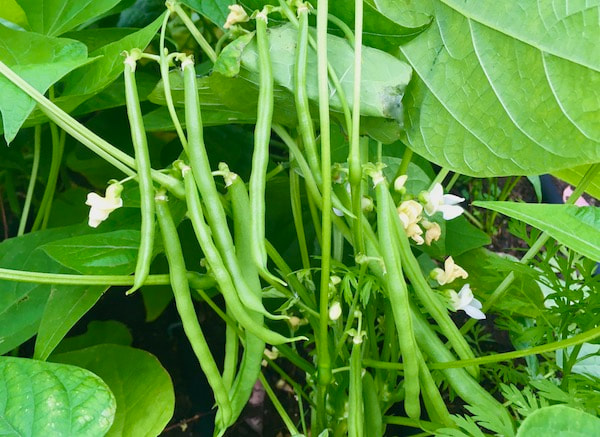
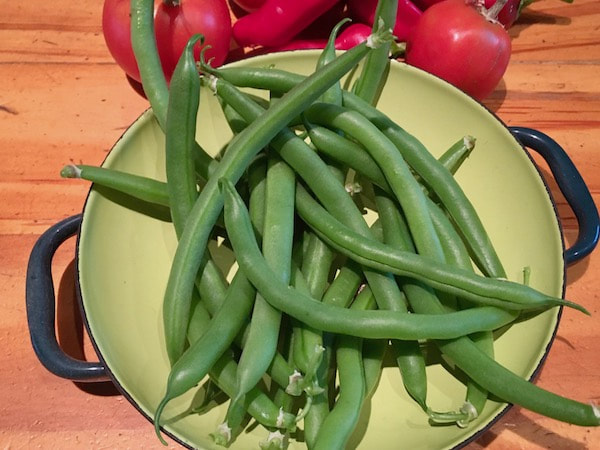
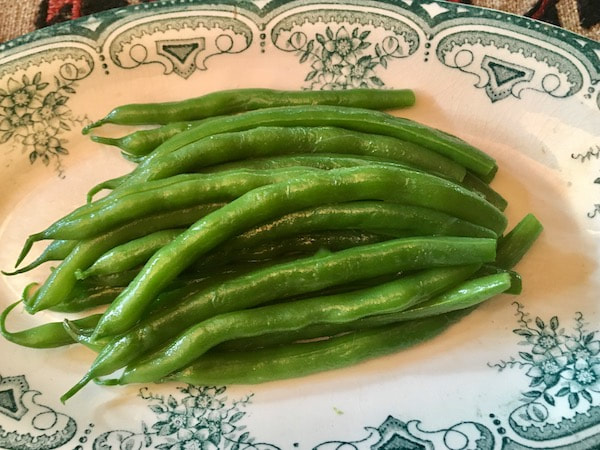
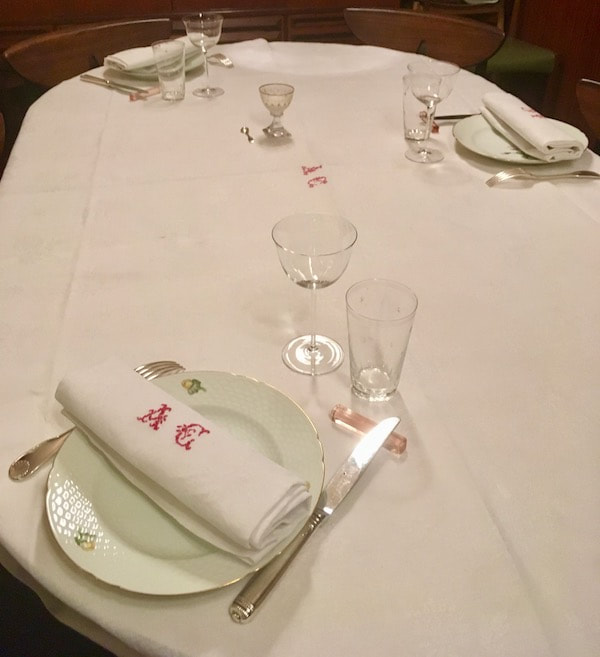
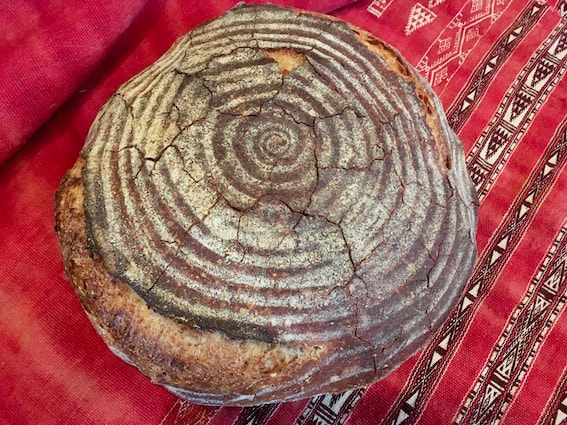
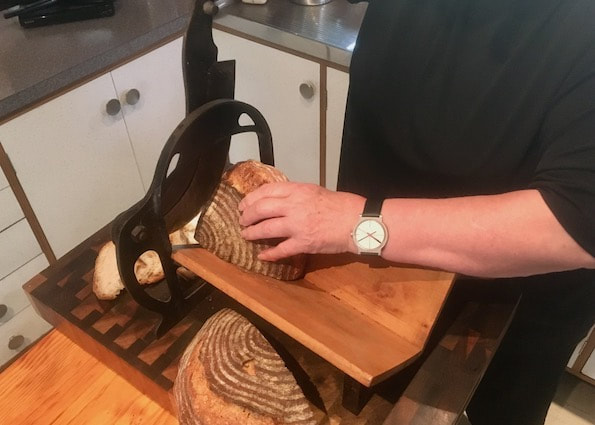
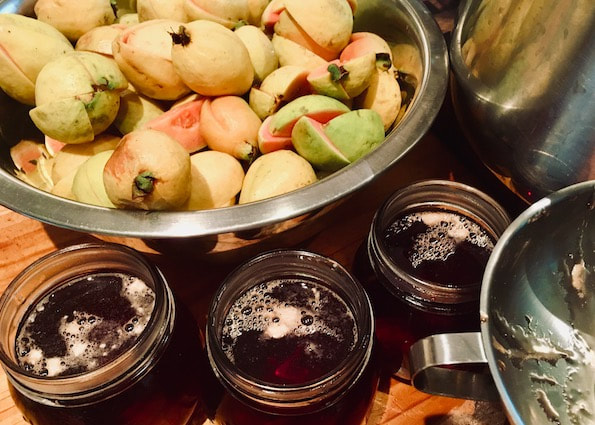
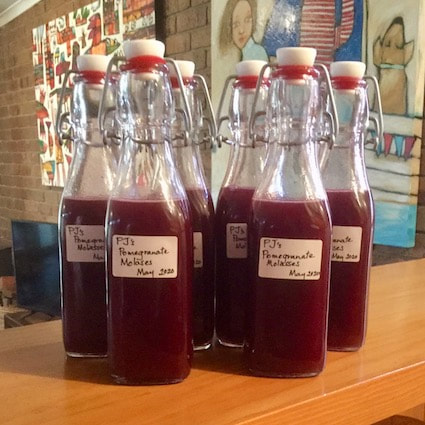
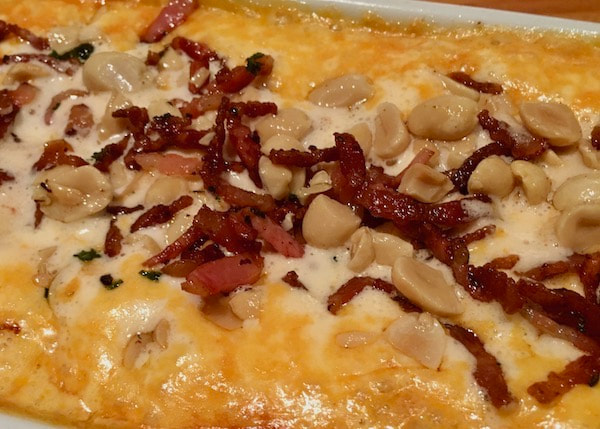
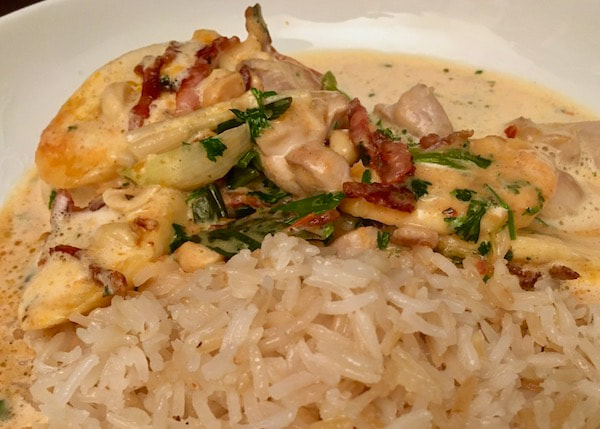
 RSS Feed
RSS Feed
